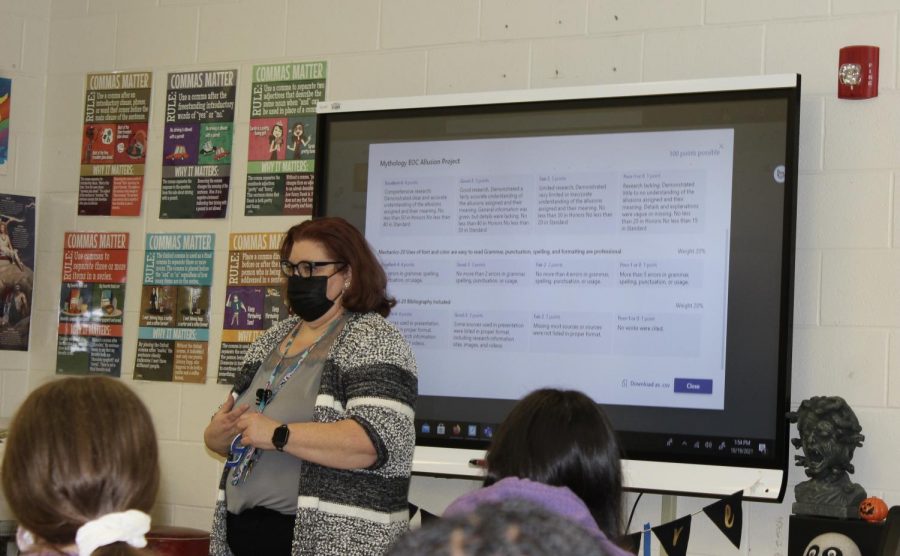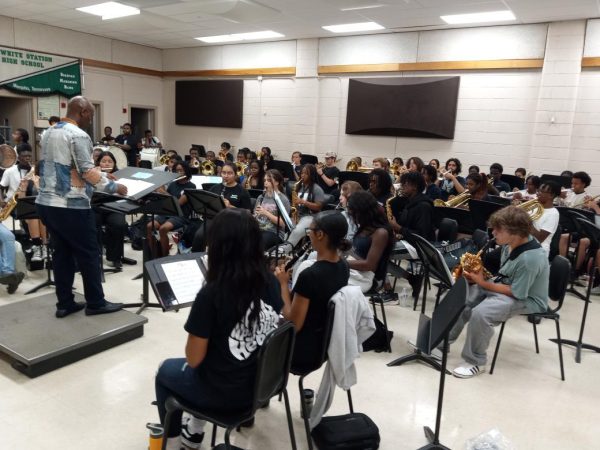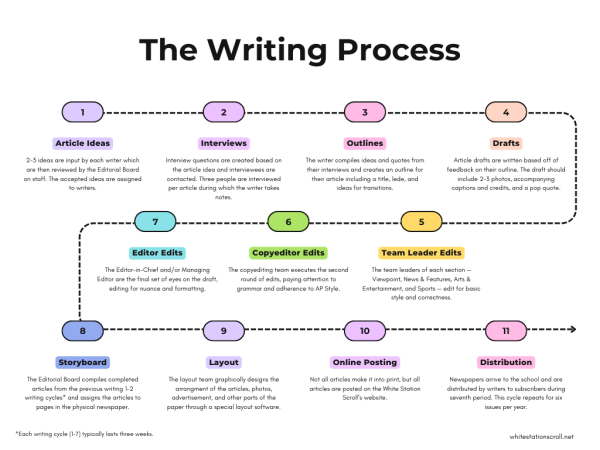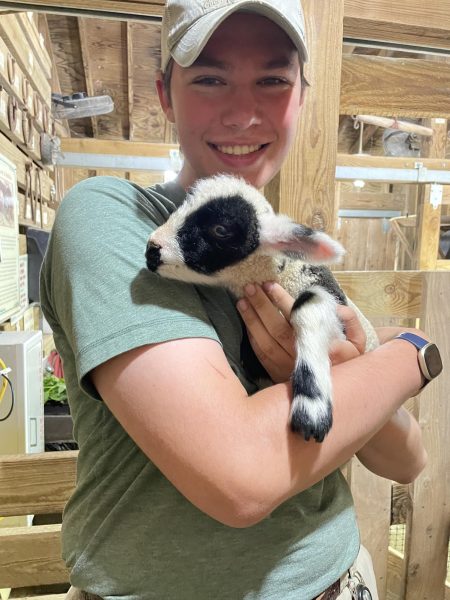Mythology: new class, ancient subject
Tracy Duckworth explains an upcoming project to her seventh period students. For the end-of-course project, students are asked to create a list of 50 allusions to mythology found in the everyday world.
“Tsskkkk tskkk.” A noise emerges from the front of the room. A hissing Medusa decoration awaits students as they step into Tracy Duckworth’s classroom for yet another day in her mythology class.
Mythology was first offered as a new semester elective course in 2020; however, Duckworth was forced to take on teaching a new subject virtually.
“I was scared, honestly, only because I had never taught it before, and I didn’t know what to expect,” Duckworth said. “It ended up being a saving grace for me that it was virtual because I wanted to do creative-type assignments.”
Prior to last year, Duckworth had only taught freshman English. Mythology, however, is offered to all grades, which provides a new experience for the teacher.
“It’s interesting as a teacher who has taught freshmen the entire time she’s been here to have students that are in different grades,” Duckworth said. “So, that’s been kind of an eye-opening experience, because I can see the differences from the freshmen just coming in and having no connection, versus students who have been here for at least a year.”
Despite mythology and English being different subjects, Duckworth has managed to tie the two together in some of her lessons.
“Since I am obviously an English teacher first, and there’s mythology, so there’s obviously reading and writing, I do try to keep the standards in mind, and so what will naturally happen is something that we’re doing in English, I sort of bring in, which is why [the students] had an essay,” Duckworth said.
Earlier this school year, mythology students had an essay in which they were allowed to go in many different directions. Some wrote an introduction to a mythology textbook, others wrote original creation stories.
“With mythology, I’m trying to make the writing more about the experience and the actual connection you’ve made to it,” Duckworth said. “In English, I’m actually trying to teach them how to write.”
Mythology students have been able to get deeper insight on how present-day scenarios and modern works can be traced to myths from years ago because of Duckworth’s class.
“Just realizing how much mythology is in our daily society that we don’t even comprehend or realize and picking up on that from the class just makes it so much more immersive as an experience,” Caleeb Lambright (10) said.
Mythology allows students to extend their understanding of allusions in media and literature. Recognizing allusions and references can be difficult when one has little knowledge of the referenced topic; so the importance of a mythology class is often overlooked.
“I was afraid I was going to [face challenges teaching mythology], and I have had people in the real world say ‘why are you teaching mythology? Why is it so important?’” Duckworth said. “Luckily, I have been able to explain to them most of the topics you read, that you watch, they probably stem from stories in mythology.”
Students in Duckworth’s class have realized mythological character traits are still in the everyday world, and they are not only in stories, but in human nature as well.
“You have these gods who are supposed to be the perfect creation and they’re above everything else, but they’re so humanlike and they go through what we go through,” Madison Huntley (12) said.
Duckworth’s interactive mythology class gives students a chance to learn and engage themselves in worlds from so long ago while being creative and gaining new outside perspectives.
“I just want to reinforce the fact that mythology is a really good course,” Lambright said. “I think it’s really influential, and I think that a lot of people write it off as useless because it’s old, a lot of old literature, but mythology is around us all the time today.”
Your donation will support the student journalists of White Station High School. Your contribution will allow us to purchase equipment and cover our annual website hosting costs.










































